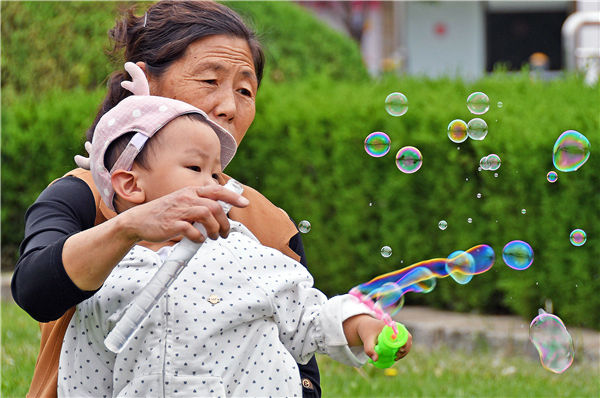Family matters


"You're very nasty," she tells the girl, according to Liu. "Treat your brother that way and you're going to kill him."
The cowering girl's face is red, and she is bawling.
"Mom, how can you say that about a child?" Liu says.
She reaches out to take Erbao from her mother-in-law, who refuses to let him go. As this is going on both children scream in fright, Liu says.
Over the next few days Liu and her mother-in-law do not talk to one another, and the atmosphere is fraught. Liu blames her mother-in-law for being careless with the children and accuses her of being biased in favor of boys. The mother-in-law, angry, wipes tears from her eyes and eventually storms out, threatening to return to her hometown.
She later tells her son's wife: "I was tied up at your home all the time. I looked after the big one and the small one. I was so tired my back never stopped aching, and then I have to put up with all your complaining."
This account of Liu is likely to be familiar to many of China's elderly. With the advent of the second-child policy, happy days of retirement for old people seem to be farther away than ever.
Instead, under the burden of familial responsibility and the high risk of bringing up a baby for a prolonged period, old people seem to have become more powerless, overwhelmed with feelings of hopelessness.
"Taking care of children is a heavy responsibility, especially if the physical health of the aged minder is in decline," says Wu Jie, deputy dean of the Institute of Psychology and Behavior of Tianjin Normal University and director of the Tianjin Student Mental Health Development Center.
"They feel more and more powerless and tend to take on excessive psychological burdens, which may lead to emotional disorders."




































